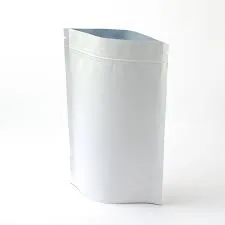- Afrikaans
- Albanian
- Amharic
- Arabic
- Armenian
- Azerbaijani
- Basque
- Belarusian
- Bengali
- Bosnian
- Bulgarian
- Catalan
- Cebuano
- chinese_simplified
- chinese_traditional
- Corsican
- Croatian
- Czech
- Danish
- Dutch
- English
- Esperanto
- Estonian
- Finnish
- French
- Frisian
- Galician
- Georgian
- German
- Greek
- Gujarati
- haitian_creole
- hausa
- hawaiian
- Hebrew
- Hindi
- Miao
- Hungarian
- Icelandic
- igbo
- Indonesian
- irish
- Italian
- Japanese
- Javanese
- Kannada
- kazakh
- Khmer
- Rwandese
- Korean
- Kurdish
- Kyrgyz
- Lao
- Latin
- Latvian
- Lithuanian
- Luxembourgish
- Macedonian
- Malgashi
- Malay
- Malayalam
- Maltese
- Maori
- Marathi
- Mongolian
- Myanmar
- Nepali
- Norwegian
- Norwegian
- Occitan
- Pashto
- Persian
- Polish
- Portuguese
- Punjabi
- Romanian
- Russian
- Samoan
- scottish-gaelic
- Serbian
- Sesotho
- Shona
- Sindhi
- Sinhala
- Slovak
- Slovenian
- Somali
- Spanish
- Sundanese
- Swahili
- Swedish
- Tagalog
- Tajik
- Tamil
- Tatar
- Telugu
- Thai
- Turkish
- Turkmen
- Ukrainian
- Urdu
- Uighur
- Uzbek
- Vietnamese
- Welsh
- Bantu
- Yiddish
- Yoruba
- Zulu
Understanding Plastic Pouch Recycling Guidelines for Better Sustainability Choices
Understanding How to Recycle Plastic Pouches A Guide to Sustainable Practices
In recent years, the growing awareness of environmental issues has prompted an increase in recycling efforts across the globe. Among the various materials that can be recycled, plastic pouches have emerged as a significant topic of discussion. These versatile containers are used extensively for packaging food, snacks, toiletries, and more. However, many consumers remain unsure about how to properly recycle them. Understanding how to recycle plastic pouches is crucial not only for reducing waste but also for promoting a sustainable future.
What Are Plastic Pouches?
Plastic pouches are lightweight, flexible containers made from layers of plastic film. They are designed to be convenient and often feature resealable zippers, spouts, or tear openings, making them popular for packaging a variety of products. However, their convenience comes with the challenge of recycling, as not all plastic pouches are created equal.
Recyclability of Plastic Pouches
The recyclability of plastic pouches largely depends on their composition. Many pouches are made from multi-layer plastics that combine different types of materials. Because of this, they are not accepted in most curbside recycling programs. However, some brands are responding to environmental concerns by transitioning to recyclable or compostable materials. Therefore, it is essential to check the packaging for recycling symbols or instructions.
Identifying Recyclable Options
To navigate the recycling landscape, consumers should follow these steps
1. Check for Recycling Symbols Look for the “how2recycle” label on the pouch. This label provides clear guidance on whether the pouch is recyclable and details the appropriate recycling practices.
how2recycle info plastic pouch

2. Read the Material Composition Many manufacturers are now using materials that are easier to recycle. If a pouch is made from single-material plastic, it is more likely to be accepted by local recycling facilities.
3. Clean and Dry Before recycling, ensure that the pouch is empty, clean, and dry. Residue from food or liquids can contaminate other recyclable materials, making them unsuitable for processing.
4. Participate in Store Drop-off Programs Some retailers offer drop-off programs for flexible plastics, including pouches. Check local store initiatives to find out if they have a recycling bin for plastic films.
5. Consider Reduce and Reuse In addition to recycling, think about ways to reduce usage and reuse plastic pouches. Many pouches can be repurposed for storage or crafts, contributing to waste reduction.
The Importance of Recycling Plastic Pouches
Recycling plastic pouches is not just about keeping waste out of landfills; it plays a vital role in the overall health of our environment. Proper recycling can reduce greenhouse gas emissions, conserve natural resources, and save energy. Additionally, recycling helps mitigate the impacts of plastic pollution, which threatens wildlife and ecosystems.
Towards a Sustainable Future
As consumers, we have the power to influence the market by embracing sustainable practices. By staying informed about how to recycle plastic pouches and advocating for better packaging solutions, we can contribute to a more sustainable world. It is crucial for everyone, from manufacturers to consumers, to take responsibility for the lifecycle of products we use daily.
In conclusion, the journey of recycling plastic pouches begins with informed choices and community efforts. By understanding what materials are recyclable and following best practices, we can all play a role in reducing plastic waste and fostering a healthier planet. Let’s work together to create a future where recycling is the norm, and plastic waste is a thing of the past.













